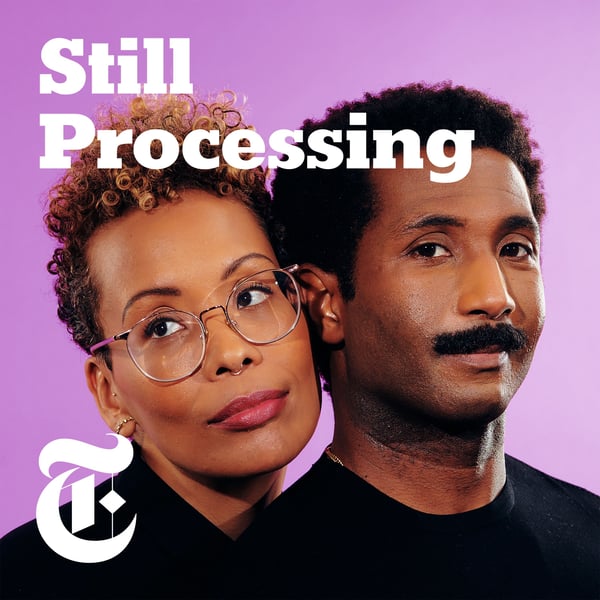Sweat Equity
Still Processing
Still Processing
4.8 • 9.2K Ratings
🗓️ 26 May 2022
⏱️ 31 minutes
🧾️ Download transcript
Summary
Transcript
Click on a timestamp to play from that location
| 0:00.0 | I'm Wesley Morris. I'm a culture writer at The New York Times. And I've been thinking |
| 0:06.0 | a lot about the ways in which culture is a kind of parent. And the idea that both art |
| 0:10.4 | and culture basically help us show us who we are. And in the middle of thinking about all |
| 0:15.0 | of this, an amazing book came into my life that performs and interrogates and inhabits |
| 0:21.0 | all of these questions. And so today on the show, we're going to hear about understanding |
| 0:27.0 | one's cultural self from the author of that book, The Great American Critic Margot |
| 0:31.3 | Jefferson. |
| 0:34.0 | This is still processing. |
| 0:43.0 | Margot. Yes, hello, Wesley. I was a little overwhelmed temporarily. You needn't. It is |
| 0:50.6 | all true. Welcome to the show. Thank you. Glad to be here. |
| 0:55.3 | I want to start with a cultural memory. You write so beautifully about Ella Fitzgerald. |
| 1:05.0 | And I want to focus on one extremely distinctive and surprising aspect of Ella Fitzgerald |
| 1:14.1 | that relates to her perspiration. I don't know. Would you call it an irony that one of the |
| 1:21.2 | most eloquent sounding women in the history of recorded sound also sweats like a pitcher |
| 1:29.2 | of water in July? There we go. I like that you use an object rather than a gender. Yeah, |
| 1:36.2 | yeah. Yeah. Yeah. Yeah. And it's what we think of as a masculine, right, almost. They |
| 1:44.3 | men have license, whether they're, you know, laboring on a railroad or creating beautiful |
| 1:52.0 | dazzling music in a concert hall or a cup. They can sweat. They can grimace. They can twist |
| 1:58.6 | themselves into all those laborious positions. They can, yeah, they get exposed because |
| 2:05.9 | the genius is what we're looking for and everything, including beads of sweat, you know, |
| 2:12.6 | and a grimace become signs of that genius in process. Women have a whole series of rituals, |
| 2:23.1 | demands, requirements for how they look, conduct themselves, comport themselves, even |
... |
Transcript will be available on the free plan in -1036 days. Upgrade to see the full transcript now.
Disclaimer: The podcast and artwork embedded on this page are from Still Processing, and are the property of its owner and not affiliated with or endorsed by Tapesearch.
Generated transcripts are the property of Still Processing and are distributed freely under the Fair Use doctrine. Transcripts generated by Tapesearch are not guaranteed to be accurate.
Copyright © Tapesearch 2025.

